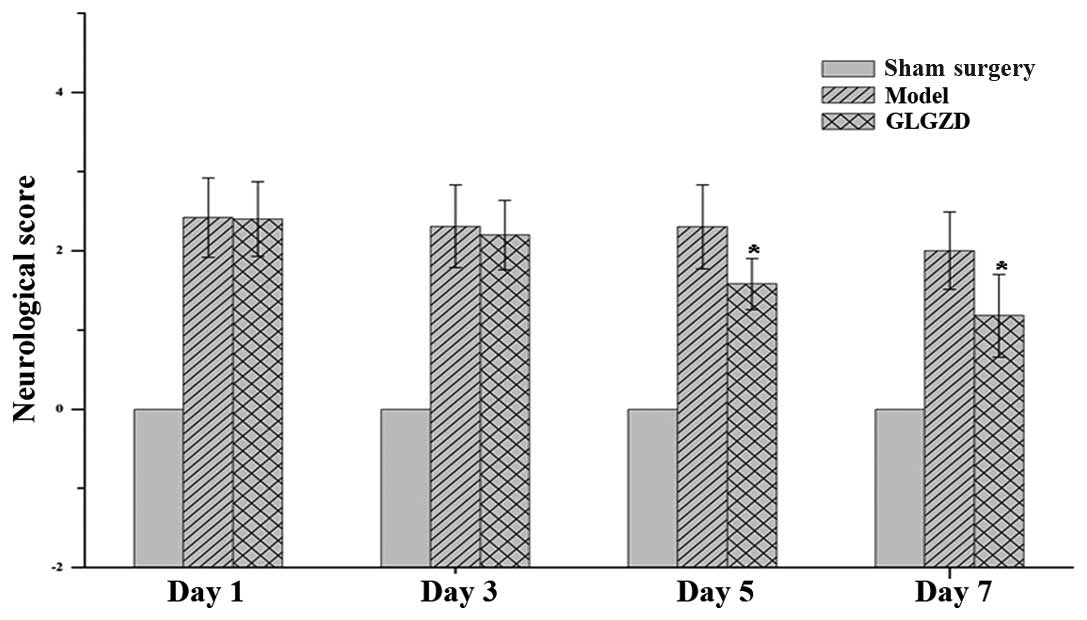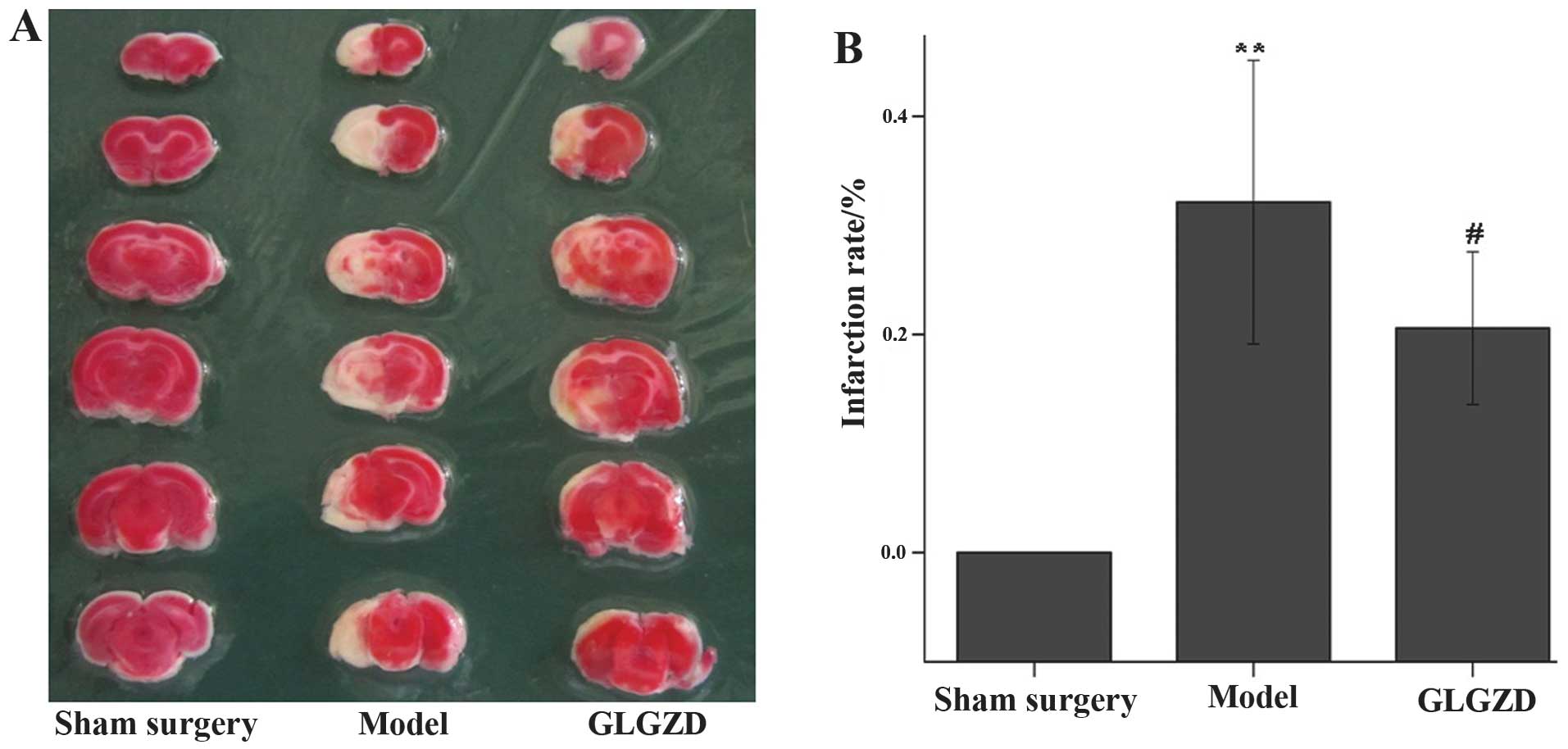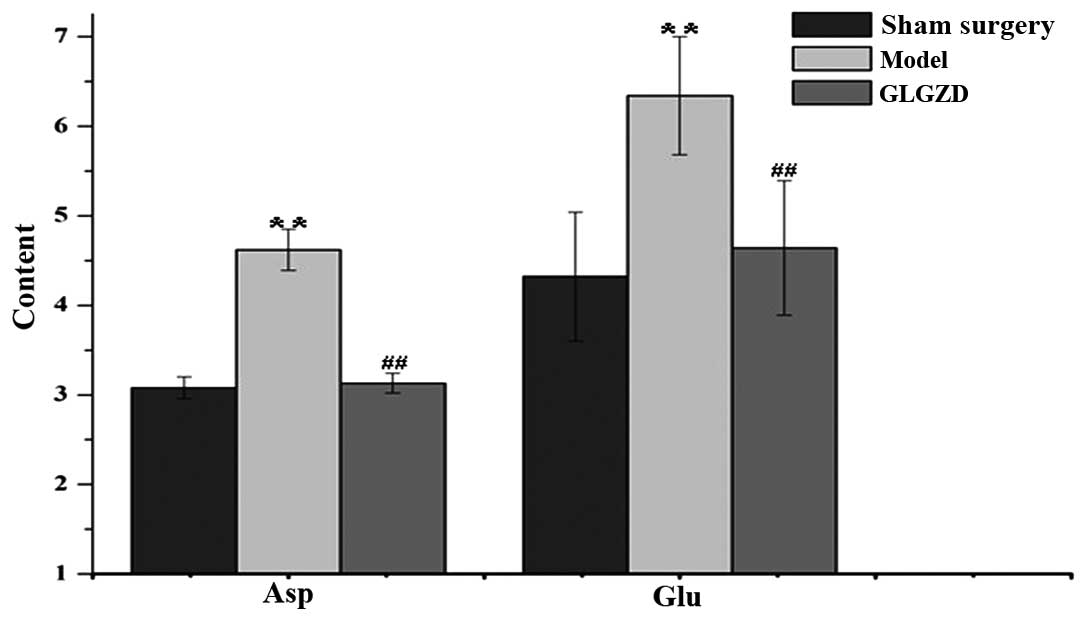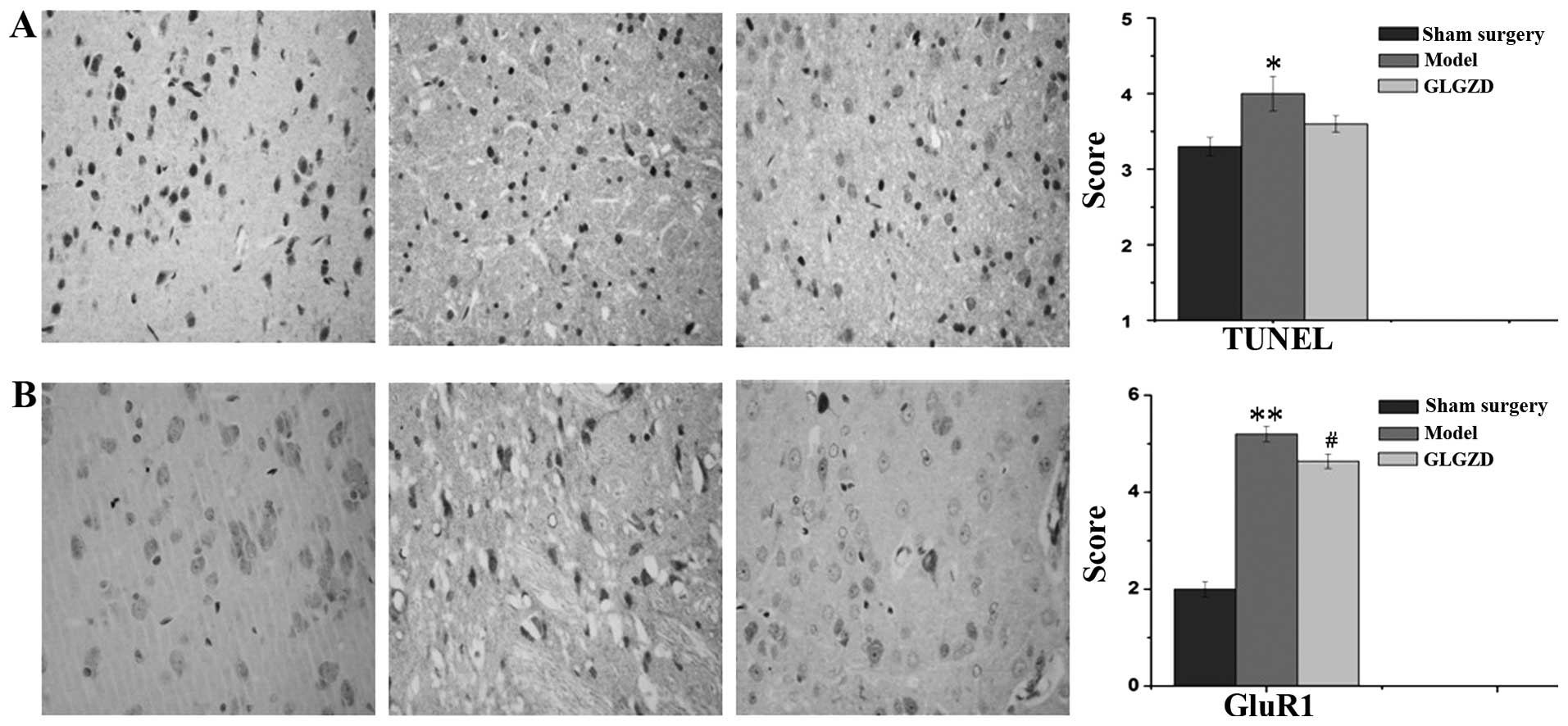|
1
|
World Health Organization: The World
Health Report 2002. World Health Organization; France: 2002
|
|
2
|
Deb P, Sharma S and Hassan KM:
Pathophysiologic mechanisms of acute ischemic stroke: An overview
with emphasis on therapeutic significance beyond thrombolysis.
Pathophysiology. 17:197–218. 2010. View Article : Google Scholar : PubMed/NCBI
|
|
3
|
Candelario-Jalil E: Injury and repair
mechanisms in ischemic stroke: considerations for the development
of novel neurotherapeutics. Curr Opin Investig Drugs. 10:644–654.
2009.PubMed/NCBI
|
|
4
|
Janardhan V and Qureshi AI: Mechanisms of
ischemic brain injury. Curr Cardiol Rep. 6:117–123. 2004.
View Article : Google Scholar : PubMed/NCBI
|
|
5
|
Amantea D, Nappi G, Bernardi G, et al:
Post-ischemic brain damage: pathophysiology and role of
inflammatory mediators. FEBS J. 276:13–26. 2009. View Article : Google Scholar : PubMed/NCBI
|
|
6
|
Doyle KP, Simon RP and Stenzel-Poore MP:
Mechanisms of ischemic brain damage. Neuropharmacology. 55:310–318.
2008. View Article : Google Scholar : PubMed/NCBI
|
|
7
|
Lafon-Cazal M, Pietri S, Culcasi M, et al:
NMDA-dependent superoxide production and neurotoxicity. Nature.
364:535–537. 1993. View
Article : Google Scholar : PubMed/NCBI
|
|
8
|
Gilman SC, Bonner MJ and Pellmar TC:
Peroxide effects on [3H] L-glutamate release by synaptosomes
isolated from the cerebral cortex. Neurosci Lett. 140:157–160.
1992. View Article : Google Scholar : PubMed/NCBI
|
|
9
|
Won MH, Kang T, Park S, et al: The
alterations of N-Methyl-D-aspartate receptor expressions and
oxidative DNA damage in the CA1 area at the early time after
ischemia-reperfusion insult. Neurosci Lett. 301:139–142. 2001.
View Article : Google Scholar : PubMed/NCBI
|
|
10
|
El-Abhar HS: Possible neuroprotective
effects of melatonin against ischemia/reperfusion insult in rat
brain. Med Sci Res. 27:605–608. 1999.
|
|
11
|
Bora KS and Sharma A: Neuroprotective
effect of Artemisia absinthium L. on focal ischemia and
reperfusion-induced cerebral injury. J Ethnopharmacol. 129:403–409.
2010. View Article : Google Scholar : PubMed/NCBI
|
|
12
|
Yoneda Y, Uehara T, Yamasaki H, et al:
Hospital-based study of the care and cost of acute ischemic stroke
in Japan. Stroke. 34:718–724. 2003. View Article : Google Scholar : PubMed/NCBI
|
|
13
|
Zhang Z, Lin Y, Yang P, Hou X and Yang Y:
Synopsis of Golden Chamber. Macmillan Press; Beijing: pp. 203–204.
2008
|
|
14
|
Yang C, Chen L and Tao J: New usage of a
classical formula-Gua Lou Gui Zhi decotion. Liaoning Zhong Yi Za
Zhi. 8:166–167. 2010.
|
|
15
|
Sun X: Research on formula treating
paralysis and spasticity from ‘treatise on febrile and
miscellaneous diseases’. Zhongguo Zhong Yi Ji Chu Yi Xue Za Zhi.
8:644–645. 2010.[(In Chinese)].
|
|
16
|
Zhang L and Ai H: Effects of Gua Lou Gui
Zhi decoction on c-fos and c-jun in epileptic rats. Shi Yong Zhong
Yi Yao Za Zhi. 23:21–22. 2005.[(In Chinese)].
|
|
17
|
Yang C, Chen L and Tao J: New usage of a
classical formula-Gua Lou Gui Zhi decoction. Liaoning Zhong Yi Za
Zhi. 8:166–167. 2010.[(In Chinese)].
|
|
18
|
Huang J, Tao J, Xue X, et al: Gua Lou Gui
Zhi decoction exerts neuroprotective effects on post-stroke
spasticity via the modulation of glutamate levels and AMPA receptor
expression. Int J Mol Med. 31:841–848. 2013.PubMed/NCBI
|
|
19
|
Camerlingo M, Salvi P, Belloni G, et al:
Intravenous heparin started within the first 3 h after onset of
symptoms as a treatment for acute nonlacunar hemispheric cerebral
infarctions. Stroke. 36:2415–2420. 2005. View Article : Google Scholar : PubMed/NCBI
|
|
20
|
Guo C, Tong L, Xi M, et al:
Neuroprotective effect of calycosin on cerebral ischemia and
reperfusion injury in rats. J Ethnopharmacol. 144:768–774. 2012.
View Article : Google Scholar : PubMed/NCBI
|
|
21
|
Zhang Y, Xu W, Li H, et al: Therapeutic
effects of total alkaloids of Tripterygium wilfordii Hook f. on
collagen-induced arthritis in rats. J Ethnopharmacol l. 45:699–705.
2013. View Article : Google Scholar
|
|
22
|
Hossmann KA: Cerebral ischemia: models,
methods and outcomes. Neuropharmacology. 55:257–270. 2008.
View Article : Google Scholar : PubMed/NCBI
|
|
23
|
Belayev L, Alonso OF, Busto R, et al:
Middle cerebral artery occlusion in the rat by intraluminal suture.
Neurological and pathological evaluation of an improved model.
Stroke. 27:1616–1622. 1996. View Article : Google Scholar : PubMed/NCBI
|
|
24
|
Yu XY, Lin SG, Zhou ZW, et al: Tanshinone
IIB, a primary active constituent from Salvia miltiorrhiza,
exhibits neuro-protective activity in experimentally stroked rats.
Neurosci Lett. 417:261–265. 2007. View Article : Google Scholar : PubMed/NCBI
|
|
25
|
Hu H, Li Z, Zhu X, et al: Gua Lou Gui Zhi
decoction suppresses LPS-induced activation of the TLR4/NF-κB
pathway in BV-2 murine microglial cells. Int J Mol Med.
31:1327–1332. 2013.PubMed/NCBI
|
|
26
|
Mao JJ, Li ZF and Guang J: Impacts of
Gualou Guizhi decoction extract on the expression of NrF2 and HO-1
mRNA in oxidative stress PC12 cells. Shijie Zhongxiyi Jiehe Zazhi.
8:563–566. 2013.[(In Chinese)].
|
|
27
|
Yu XQ, Xue CC, Zhou ZW, et al: In vitro
and in vivo neuroprotective effect and mechanisms of glabridin, a
major active isoflavan from Glycyrrhiza glabra (licorice). Life
Sci. 82:68–78. 2008. View Article : Google Scholar : PubMed/NCBI
|
|
28
|
Danbolt NC: Glutamate uptake. Prog
Neurobiol. 65:1–105. 2001. View Article : Google Scholar : PubMed/NCBI
|
|
29
|
Parelkar NK and Wang JQ: Upregulation of
metabotropic glutamate receptor8 mRNA expression in the rat
forebrain after repeated amphetamine administration. Neurosci Lett.
433:250–254. 2008. View Article : Google Scholar : PubMed/NCBI
|
|
30
|
Bonde C, Noraberg J, Noer H and Zimmer J:
Ionotropic glutamate receptors and glutamate transporters are
involved in necrotic neuronal cell death induced by oxygen-glucose
deprivation of hippocampal slice cultures. Neuroscience.
136:779–794. 2005. View Article : Google Scholar : PubMed/NCBI
|
|
31
|
Gottlieb M and Matute C: Expression of
ionotropic glutamate receptor subunits in glial cells of the
hippocampal CA1 area following transient forebrain ischemia. J
Cereb Blood Flow Metab. 17:290–300. 1997. View Article : Google Scholar : PubMed/NCBI
|


















